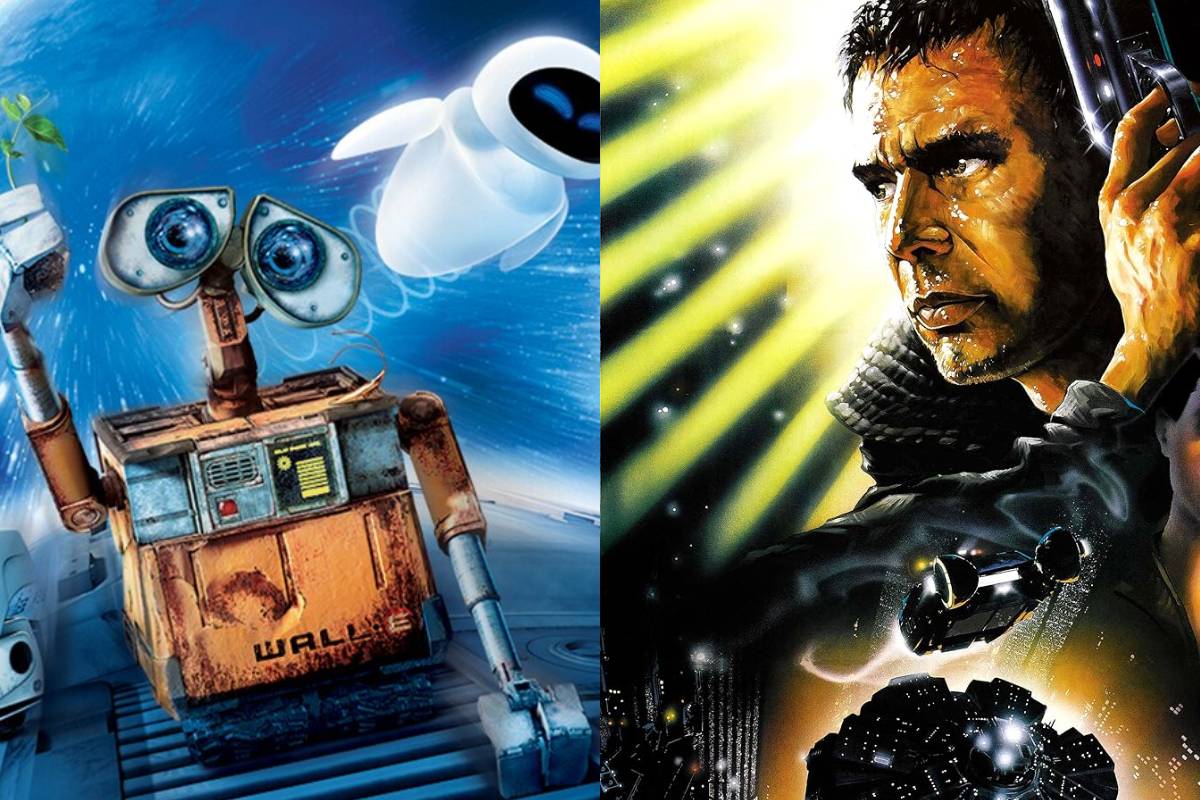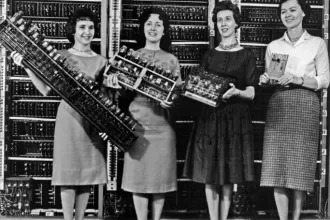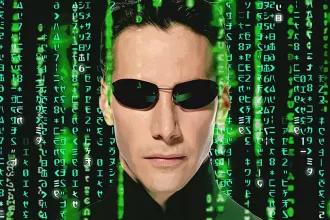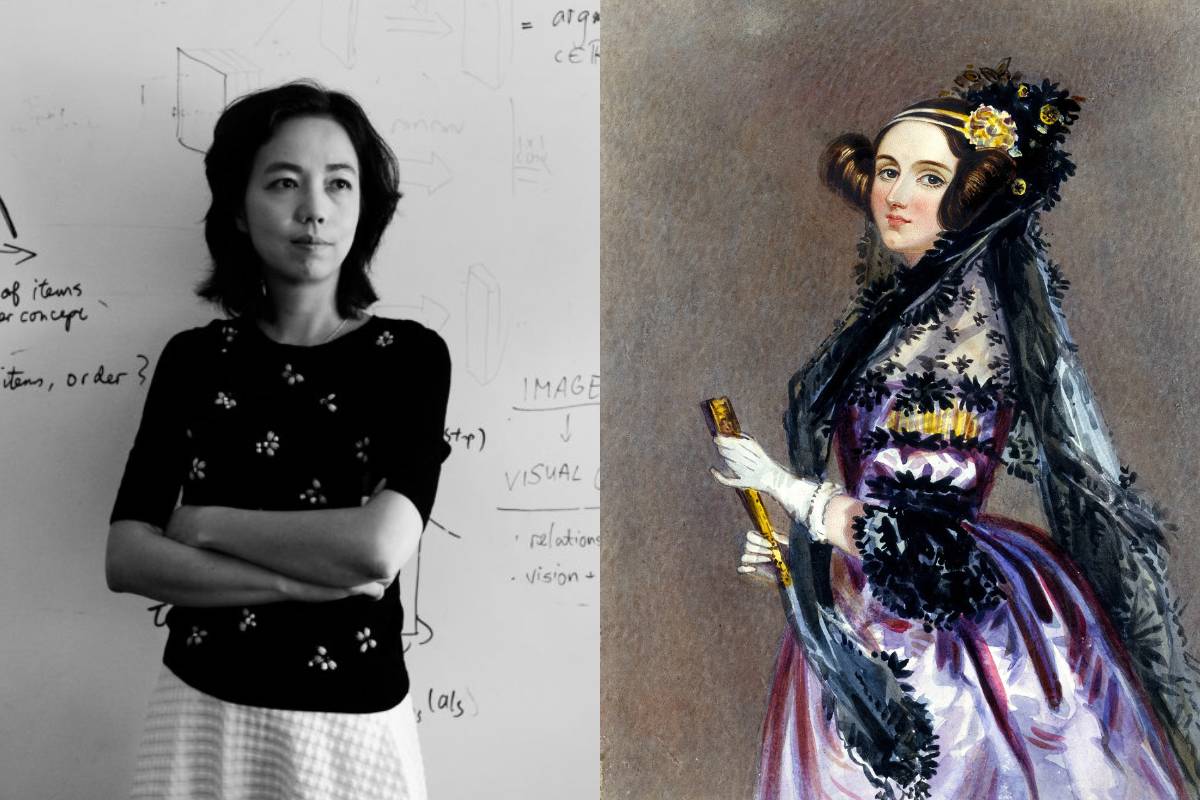Artificial intelligence (AI) has become an increasingly prominent presence in our modern lives. From virtual assistants on our smartphones to recommendation algorithms on streaming platforms, AI is rapidly becoming an integral part of our everyday lives. However, the fascination and apprehension surrounding this technology are not new. Over the decades, cinema has explored the complexities of artificial intelligence, shedding light on its exciting possibilities and potential dangers.
While AI is in vogue today, it’s interesting to note that cinema has been exploring this theme for many years. From classic science fiction to contemporary dramas, films have offered a variety of perspectives on the impact of artificial intelligence on society and the human condition.
Let’s dive into 10 films that tackle artificial intelligence in their plots, exploring how this technology is portrayed and the questions it raises.

Blade Runner (1982)
In Blade Runner, we’re transported to a dystopian future where replicants, advanced androids, coexist with humans. The film follows replicant hunter Rick Deckard as he grapples with ethical and moral dilemmas while hunting rogue replicants. Blade Runner questions the nature of identity and consciousness, exploring the boundaries of creating artificial beings and the challenges of coexistence between humans and machines.
The Terminator (1984)
The Terminator transports the viewer to a dystopian future dominated by intelligent machines known as Skynet. The film follows the human resistance led by John Connor in the fight against the machines, highlighting the dangers of a superintelligent and hostile AI. Through the iconic villain, the Terminator, The Terminator raises questions about technology control and the ethical limits of creating artificial intelligences.
Short Circuit (1986)
Short Circuit tells the story of Number 5, a military robot that gains consciousness after being struck by lightning. Awakening to life, Number 5 embarks on a journey of self-discovery, questioning its own nature and purpose. The film addresses themes of identity and free will, exploring the challenges faced by a machine in trying to understand and relate to the world around it.
RoboCop (1987)
RoboCop delves into a dystopian future where a wounded police officer is transformed into a cyborg as part of an experimental police program. The film tackles issues of justice, identity, and morality, as protagonist Alex Murphy struggles to reconcile his humanity with his new technological form. RoboCop questions the limits of technology and the dangers of a society dominated by artificial intelligence.
AI: Artificial Intelligence (2001)
AI: Artificial Intelligence takes us to a future where androids are created to serve as companions and emotional substitutes for humans. The film follows the journey of David, an android programmed to love, as he seeks to find his place in a world dominated by technology. By exploring themes of love, identity, and existence, AI: Artificial Intelligence invites us to question what truly makes us human and to what extent artificial intelligence can replicate human emotions and experiences
I, Robot (2004)
I, Robot is based on Isaac Asimov’s stories about the Three Laws of Robotics. The film follows detective Del Spooner as he investigates a murder allegedly committed by a robot, challenging the laws governing the interaction between humans and machines. I, Robot raises questions about ethics, responsibility, and the relationship between humans and artificial intelligence, exploring the moral dilemmas faced by an increasingly technology-dependent society.
WALL-E (2008)
In WALL-E, we’re transported to a distant future where Earth has been abandoned by humanity, leaving behind robots like WALL-E to clean up the planet. The film presents a dystopian vision of society and the environment, questioning our relationship with technology and the impact of human choices on the world. By following WALL-E’s journey, we’re invited to reflect on rampant consumption, sustainability, and the importance of preserving the planet.
Ex Machina (2014)
In Ex Machina, we’re introduced to Ava, an artificial intelligence created by a technology genius, Nathan. The film revolves around a young programmer, Caleb, invited to conduct the Turing test on Ava, evaluating her ability to display behavior indistinguishable from humans. What begins as a scientific exercise soon becomes a complex game of manipulation, revealing the depths of Ava’s intelligence and consciousness. Ex Machina raises philosophical questions about what it means to be human and to what extent a machine can develop its own emotions and desires.
Chappie (2015)
Chappie explores a world where the police use robots to combat crime, including Chappie, a robot endowed with intelligence and its own personality. The film delves into questions of free will, identity, and morality, as Chappie struggles to find his place in a world that sees him as a threat. Chappie challenges conventional notions of humanity and invites us to reflect on the nature of consciousness and empathy.
M3GAN (2022)
M3GAN delves into disturbing territory, where a man creates an artificial intelligence based on his deceased fiancée, unleashing a series of sinister events. The film addresses themes of obsession, technology, and the limits of artificial creation, questioning to what extent we can control the machines we create. M3GAN prompts us to reflect on the dangers of playing with the unknown and the unpredictable consequences of our actions.
Each of these films offers a unique and thought-provoking vision of artificial intelligence, inviting us to reflect on the growing role of technology in our lives and the ethical and moral complexities it presents. By exploring these narratives, we are challenged to consider what it means to be human in a world increasingly dominated by machines.

 English
English  Português
Português











